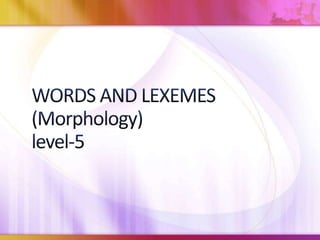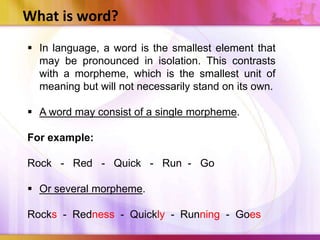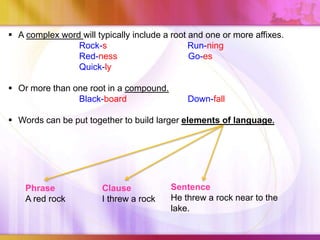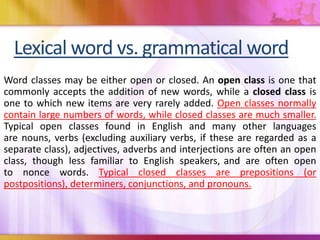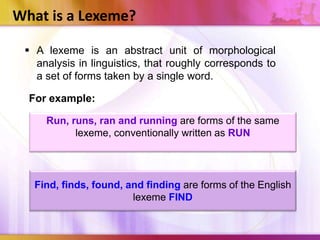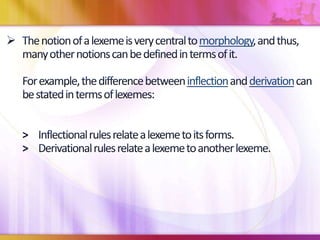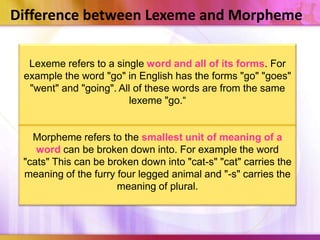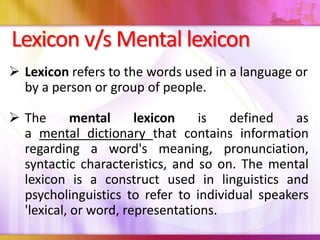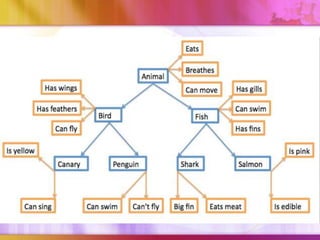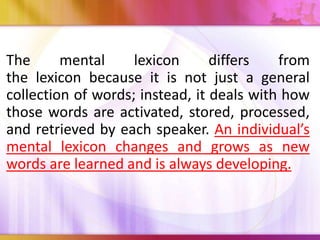Word can refer to the smallest unit that can be pronounced alone (contrasted with a morpheme, which is the smallest unit of meaning). A word may consist of a single morpheme or multiple morphemes. Words can be made of roots, affixes, and compounds. Words are combined to form larger linguistic elements like sentences, phrases, and clauses. Word classes are either open, accepting new additions, or closed, rarely accepting new items. A lexeme refers to a word and all its forms, while a morpheme is the smallest unit of meaning a word can be broken into. The mental lexicon contains a person's representations of words, differing from the lexicon as a general collection.
